May 31, 2025 | 06:09 GMT +7
May 31, 2025 | 06:09 GMT +7
Hotline: 0913.378.918
May 31, 2025 | 06:09 GMT +7
Hotline: 0913.378.918
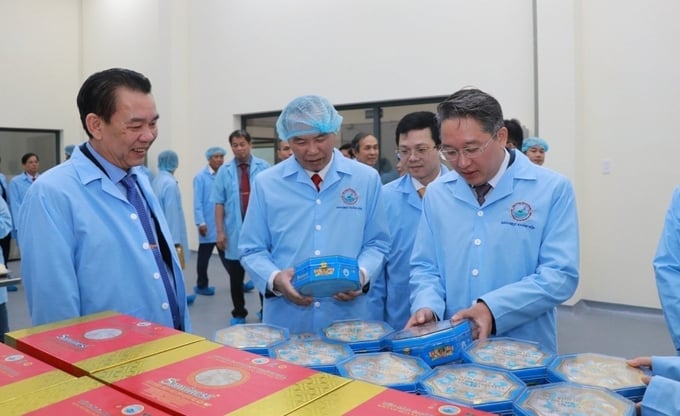
Khanh Hoa province possesses significant strengths in swiftlet nest farming. Photo: PC.
November 16, 2023 marked a promising milestone and beginning for the swiftlet nest farming and processing industry in Vietnam. Namely, the first shipment of Vietnamese swiftlet nest was officially exported to the Chinese market on this date, following five years of negotiation between both countries.
News of the first export shipment has brought great delight to swiftlet farmers nationwide, instilling further confidence in the industry's imminent breakthrough. Mr. Nguyen Van Tuan, a swiftlet farmer in Vinh Hiep commune, Nha Trang city, Khanh Hoa province, shared that local farmers traditionally raise swiftlets and sell their nests independently. However, Mr. Tuan believes that the official export of Vietnamese swiftlet nest will create a stable product's market with favorable prices.
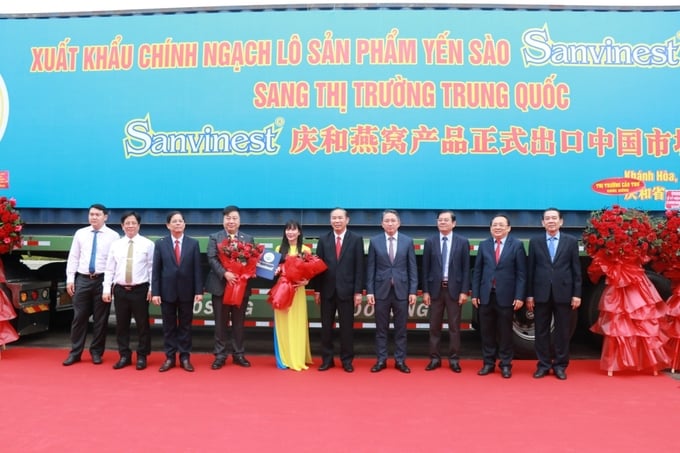
The first shipment of Vietnamese swiftlet nest was officially exported to the Chinese market. Photo: AK.
According to Mr. Nguyen Van Tuan, his family currently owns three swiftlet houses with an annual yield of several tens of kilograms of swiftlet nests per house. Mr. Tuan conducts annual maintenance to create optimal environmental conditions for the nesting and reproduction of swiftlets, thereby facilitating a stable swiftlet population. Furthermore, he emphasizes the importance of maintaining high levels of hygiene within the swiftlet houses, and harvesting high-quality products.
Ms. Tran Bao Chau, General Director of Khang Chau Swiftlet Nest Company Limited, stated that the company currently manages eight long-term swiftlet houses with significant yields in Phu Yen province. The company's swiftlet nest products have been exported to various provinces and cities nationwide. Additionally, the company's products have been assessed to meet the standards for export. Accordingly, the company registered three swiftlet houses to establish a supply chain for export in the near future.
"With the aim of enhancing the quality of our swiftlet nest products, the company regularly updates its technology, and focuses on ensuring food safety and hygiene. As a result, our swiftlet nest products have been qualified for numerous certifications, including 4-star OCOP, HACCP, ISO, and so on. Additionally, we strictly adhere to swiftlet nest export standards and regulations, and promptly address arising issues," shared Ms. Tran Bao Chau.

Vietnam holds significant potential for the development of swiftlet nest farming. Photo: KS.
Similarly, swiftlet farmers in the Central Highlands responded positively to the official export of Vietnamese swiftlet nest to China. Ms. H'Mo H'Loan from Ea Hiu commune, Krong Pac district, Dak Lak province, shared that her family has been engaged in swiftlet farming since 2018. Accordingly, the family harvests approximately 4 kilograms of swiftlet nests every three months.
Similar to other local swiftlet farmers, the family primarily engaged in the retailing of their swiftlet nests at the price of over 30 million Vietnamese dong per kilogram of cleaned product. Consequently, the family's output has remained relatively unstable throughout the years. Following the news of the official export of Vietnamese swiftlet nest to China, the family has collaborated with businesses to produce swiftlet nests in accordance with export standards, with the goal of establishing a stable market with favorable prices.
According to Mr. Ngo Dinh Van, Vice Chairman of the Dak Lak province's Swiftlet Association, the global expansion of the swiftlet nest market, with an emphasis on the Chinese market, has gained the attention of leadership from various levels and sectors, and major businesses. However, sustainable development of the swiftlet nest industry requires both businesses and farmers to produce high-quality, high-value products that meet food safety standards, and establish connections to create a value chain.
To this extent, swiftlet farmers must collaborate with pioneering businesses in promoting swiftlet nest exports, focusing on businesses with signed cooperation agreements with Chinese partners to facilitate official exports.
According to Mr. Pham Duy Khiem, Chairman of the Phu Yen province's Swiftlet Association and Vice Chairman of the Vietnam Swiftlet Association, the swiftlet nest industry in Vietnam has created a new developmental direction for the consumption of swiftlet nests, which is a traditional and renowned product without an official export channel.
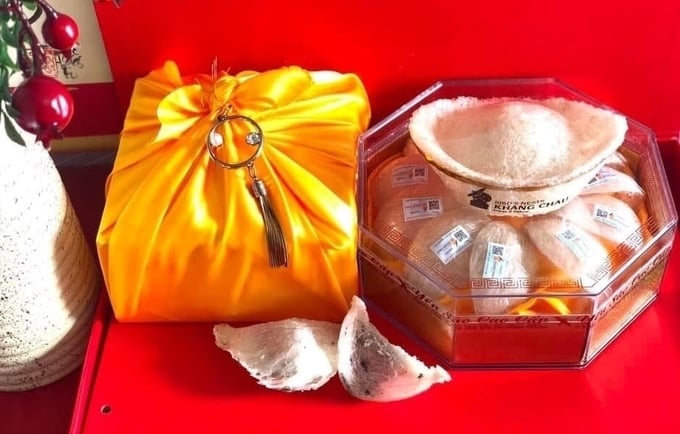
Vietnamese swiftlet nests feature an elevated level of nutritious content, which contributes to their excellent product quality. Photo: KS.
Domestic consumers, in addition to those from China and various Asian countries, exhibit a preference for Vietnamese swiftlet nests due to their higher nutritional content in comparison with similar products from other countries. This proclivity poses as an advantage for the Vietnamese swiftlet industry to enhance the value of its products and brand.
According to Mr. Pham Duy Khiem and a preliminary assessment, there are approximately 24,000 swiftlet houses across 43 provinces and cities nationwide, with a total annual yield of 120 to 150 tons, and a total value ranging from 500 to 600 million USD.
The Mekong Delta region, including Long An, An Giang, Kien Giang, Tay Ninh, provinces bordering Cambodia, and the Central Highlands, have recently witnessed significant growth in swiftlet nest farming. As a result, the domestic production of swiftlet nests is expected to grow rapidly within the next few years, supported by business's investment in processing for export and consumption contracts.
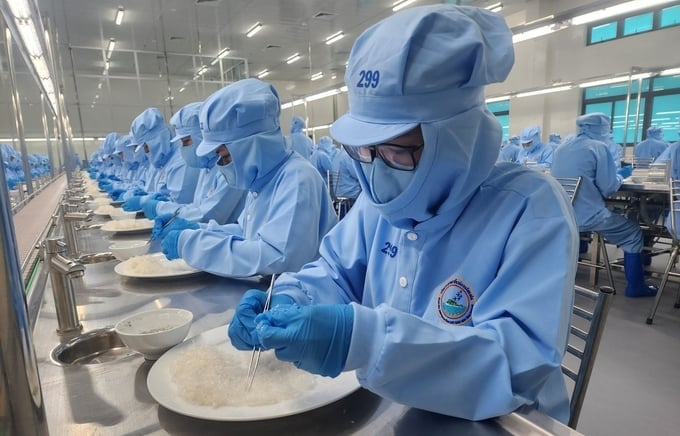
The swiftlet nest industry is expected to reach a billion-dollar export value. Photo: PC.
However, Mr. Khiem believes that the opening of the Chinese market to Vietnam's swiftlet nests also poses numerous challenges. Notably, the Protocol imposes 16 requirements regarding disease safety and safety. Furthermore, swiftlet nest products are monitored in accordance with standards imposed by both Vietnam and China.
The criteria set by Chinese Customs for swiftlet nests necessitate strict adherence to specified standards. Namely, house swiftlet nests must be white or ivory in color, and island swiftlet nests must be red or orange in color. Additionally, the nests must exhibit a characteristic aroma without abnormal odors. Examination using a magnifying glass with a 5 to 10 times magnification must reveal an absence of impurities. Other requirements include a moisture content of less than 15%; a protein content of at least 40%; an amino acid content of 46 to 50%, H5N1 negativity; Salmonellosis negativity per 25 grams. Consequently, operating swiftlet houses in accordance with regulations is imperative.
Additionally, it is essential to establish and ensure traceability of swiftlet nest products. Completing the registration process for export businesses and meeting other requirements regarding the production, labeling, and packaging processes is equally crucial.
According to Deputy Minister of the Ministry of Agriculture and Rural Development Phung Duc Tien, China, with a population of over 1.4 billion people, is the world's largest market for swiftlet nest consumption. Namely, the country boasts an annual demand of 300 tons, accounting for 80% of the global market share. Numerous Vietnamese businesses are planning to export swiftlet nest products to the Chinese market in the near future, which will further encourage the development of the swiftlet industry in Vietnam.
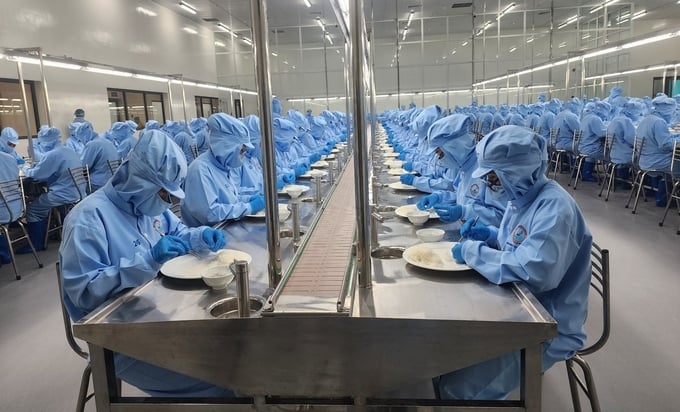
Swiftlet nest processing for export in Khanh Hoa province. Photo: PC.
On the other hand, the Ministry of Agriculture and Rural Development will guide and propose solutions to establish legal frameworks and foundations for the sustainable development of the swiftlet industry, based on negotiation results between Vietnam, China and other related international partners within the last five years.
According to Deputy Minister Phung Duc Tien, technical training for swiftlet farmers is necessary to ensure origin traceability, food safety, disease safety, and compliance with strict criteria as imposed by various markets around the world. Moreover, the establishment of an ecosystem encompassing businesses, cooperatives, and swiftlet farmers is essential to both production and export.
According to Ms. Trinh Thi Hong Van, Deputy General Director of Khanh Hoa Swiftlet Nest Company Limited and Chairman of the Board of Directors of Khanh Hoa Swiftlet Nest Beverage Joint Stock Company, the company successfully exported its first shipments of swiftlet nest beverage and swiftlet nest products to China on October 16 and November 24, respectively.
According to her, thanks to the Chinese market's a comprehensive understanding of swiftlet nest products, the company has the opportunity to develop and expand its supermarket channels, distributors, and agents within this country. With the goal of meeting export quality standards, the company has initiated the construction of over 300 swiftlet houses, including 142 houses which are qualified for export. The company plans to standardize additional swiftlet houses for export registration, as well as enhance production capacity and product quality for export to the Chinese market.
Translated by Nguyen Hai Long
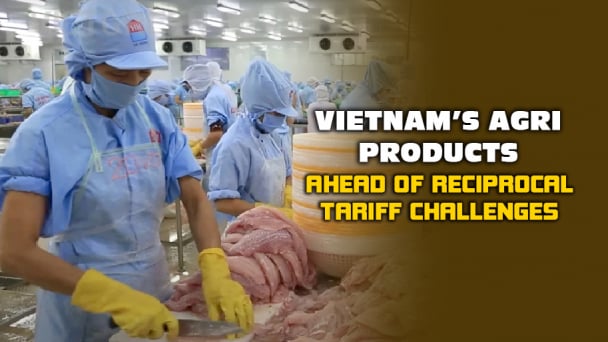
(VAN) Reciprocal tariffs are exerting pressure on U.S. exports, prompting Vietnamese firms to shift their focus to Muslim markets, Thailand, and Brazil.
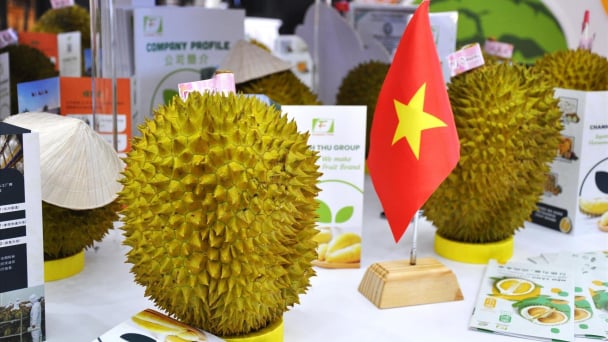
(VAN) A free booth for two years at Xinfadi, Beijing's largest wholesale market, will be allocated to Vietnam's agricultural products.
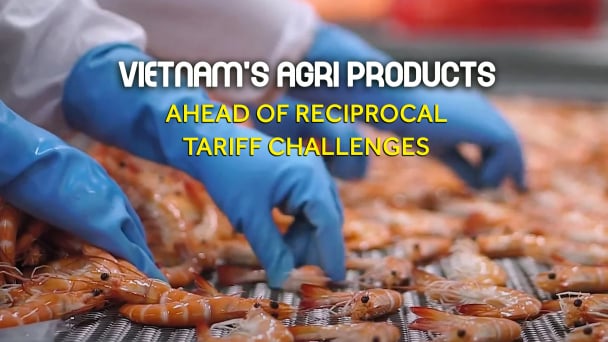
(VAN) Vietnamese shrimp exporters are actively looking for alternative markets and accelerating shipments to the United States in response to the pressure of impending reciprocal tariffs. This is occurring during a temporary tariff suspension.

(VAN) The import-export turnover between Vietnam and Singapore rose amid a trade rebound, with machinery, electrical equipment, and fuels making up the majority of the transaction value.

(VAN) Director General of the General Administration of Customs of China, Ms. Sun Mai Jun, has pledged to implement measures that will ease the import process for Vietnamese agricultural products.

(VAN) Although Vietnam is still increasing its coffee exports, the industry is currently in the process of determining market strategies in response to the U.S. imposition of reciprocal tariffs.

(VAN) With rising demand in Muslim-majority countries, Halal certification is becoming a critical passport for Vietnamese agricultural products seeking sustainable market access and consumer trust in the Middle East and Africa.